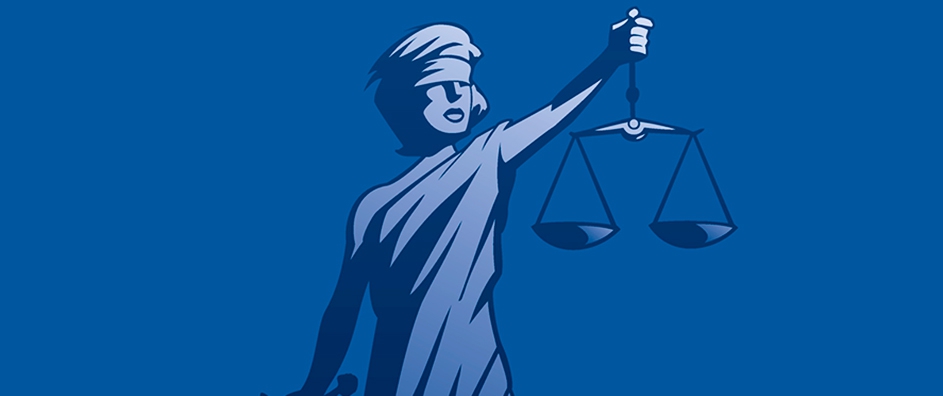The views expressed in our content reflect individual perspectives and do not represent the authoritative views of the Baha'i Faith.
If goodness has a positive existence, I reasoned as a young boy, then wouldn’t evil have a negative one?
The more I meditated on this theory, the more I became convinced that there had to be justice or equilibrium—things simply had to work out the way they should. How could they not?
I somehow intuitively knew that those who performed acts of goodness through their love of others would themselves become recipients and beneficiaries of that energy, even as my forward motion on the bicycle came from the energy of churning my legs. Likewise, Dad’s car moved up the hill because of the exploding gaseous vapor at the top of the cylinder heads. Whereas those who took away energy or perpetrated situations in which the life force was stopped or diminished would suffer the consequences of that loss.
As a boy, my thinking about this process did not stay on a theoretical, geo-physical plane for very long at all. It quickly morphed into the more practical and commonplace concept of human notions of reward and punishment. I don’t mean justice in the sense of penological theory and practice. I mean that I came to believe that ultimately good people were rewarded for their goodness, that people who perpetrated iniquity would suffer the consequences of their perverse deeds, and that everything had to turn out for the best in the end.
All my Methodist church training confirmed this theory with vivid tales from both the Old and New Testaments (mostly the Old Testament, where God is more proactive), but it was not all that far along in my life that I began to become aware of a problem that seemed to undermine both my theory of justice and the ability of my religious beliefs to respond meaningfully to blatant injustice, such as the suffering of the innocent, the death of children, car accidents, plane crashes, and, of course, the ever-present “acts of God”—an obvious misnomer since God would in no way perpetrate such heinous events, not the God I knew and loved.
This problem remained in the back of my mind for a long time as I became distracted with girls, high school, sports, and such. When it finally re-emerged, I learned its name: “theodicy,” the philosophical area of discussion that considers how one can have a belief that God is benign and omnipotent, yet is unwilling to intervene to set things right in this world. How can God exist simultaneously with injustice and suffering?
This subject became increasingly interesting to me the more I endured some of the whips and scorns of time over my first two decades. I was in need of the consolation of philosophy to help me endure and prosper amid a life starting to become chaotic and totally unromantic. It was in the midst of this angst that I turned to poetry and philosophy, both as a writer and as a student.
One of the first great literary theorists, Aristotle, describes the purpose of the dramatic genre of tragedy as the “purgation” or “catharsis” of the emotions of pity and fear. While there are a number of interpretations about what he means by “catharsis,” one obvious implication is that we would do well to exercise these emotions, which help us stay in touch with our humanity, and to be wary of those events that instigate them.
That Aristotle selected these particular emotions of pity and fear as collateral components of our response to viewing something tragic is also fairly apparent. We pity the tragic choices of the hero that lead him or her to a downfall, because these are not bad people. For the most part, these tragic figures are basically noble and have great potential, but it seems they are addicted to some fatal passion, some lower aspect of “self” that consistently overrides good judgment.
The fear we experience as we watch the tragic fall occurs because we realize—if we are attentive to the subtlety of the fall—that we too are liable to the same sort of tragic choices. We can choose to allow our souls to live, or we can tragically, through our own choices, let them die. This powerful metaphor for life and death sparked my intuition about the second law of thermodynamics. Somehow, somewhere, that life energy still thrives, even after the physical body dies.
It must be so, and our grieving hearts can countenance no worthy consolation that does not somehow confirm this idea. How can a life that was at one moment so alive, so full of dimension and beauty and possibilities, vanish so suddenly and irretrievably from our presence? The Baha’i teachings assure us that life continues after death:
Know thou that the soul of man is exalted above, and is independent of all infirmities of body or mind. That a sick person showeth signs of weakness is due to the hindrances that interpose themselves between his soul and his body, for the soul itself remaineth unaffected by any bodily ailments. Consider the light of the lamp. Though an external object may interfere with its radiance, the light itself continueth to shine with undiminished power. In like manner, every malady afflicting the body of man is an impediment that preventeth the soul from manifesting its inherent might and power. When it leaveth the body, however, it will evince such ascendancy, and reveal such influence as no force on earth can equal. Every pure, every refined and sanctified soul will be endowed with tremendous power, and shall rejoice with exceeding gladness. – Baha’u’llah, Gleanings from the Writings of Baha’u’llah, p. 153-154.
















Comments
Sign in or create an account
Continue with Googleor